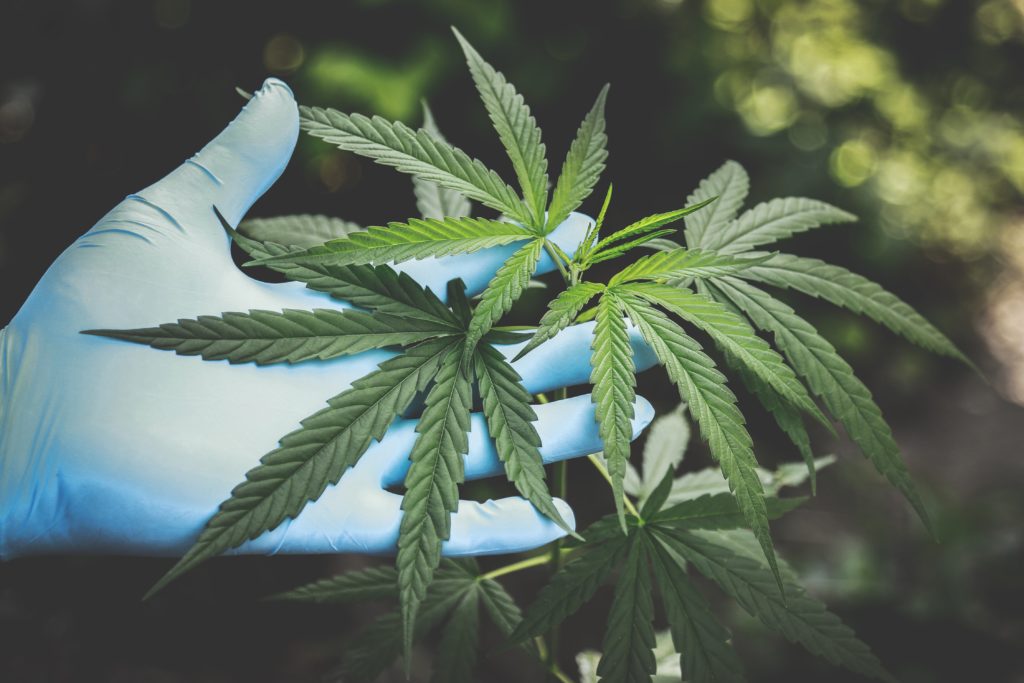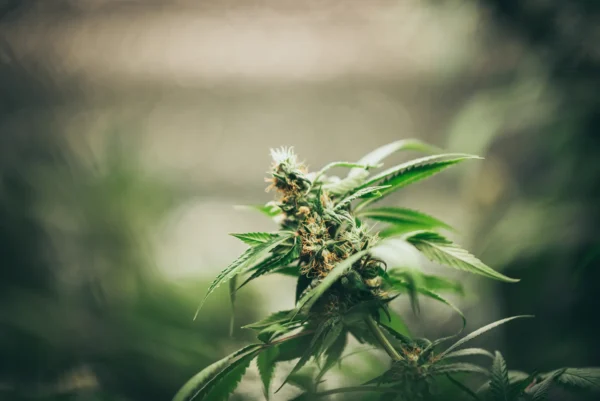The UK’s cannabidiol (CBD) industry has developed at an impressive pace over the last few years as consumers become increasingly interested in alternative wellness products and access to medical cannabis. CBD wellness products such as oils, topicals, and edibles can now be purchased from large high-street retailers such as pharmacies and supermarkets, as well as a huge number of online shops.
In many ways, the demand for CBD wellness products has accelerated at a faster pace than legislation and regulation around the new industry. Unfortunately, this has often meant the availability of low quality – and even, illegal – products on the UK market. However, it is hoped that the introduction of Novel Foods regulation in the UK this year will help to improve product quality and consistency. Furthermore, the longstanding ban on advertising for CBD products is now beginning to ease off, as demonstrated by the premier of the first TV advert for a CBD product launched by Cannaray and featuring celebrity presenter Claudia Winkleman.
This milestone will allow for CBD brands to reach an even larger audience, potentially bringing the concept of cannabinoid wellness to even more people. But in the wake of this progress, it is important that the public remain educated on the differences between wellness CBD products that are available to purchase over the counter without restriction, and medical cannabis products that require the expertise of a specialist hospital consultant to assess whether a prescription is appropriate.
The differences between CBD and medical cannabis
Medical cannabis is a broad term used to describe medical products derived from the cannabis plant or synthetic versions of compounds found within the plant. This class of medications is referred to by healthcare professionals as cannabis-based medicinal products, or CBMPs. CBMPs can include a wide range of products, including whole cannabis flower and full spectrum or isolated products available as oils or capsules. CBD wellness products can also come in a range of forms, however, there are some key differences between these and CBMPs.
Cannabis-based medicinal products
Full or broad-spectrum CBMPs can contain a number of compounds including cannabinoids, terpenes, and flavonoids – however, CBD and tetrahydrocannabinol (THC) are most often the primary ingredients in these products. These compounds have been researched for their therapeutic and medicinal properties and, between them, have been found to be responsible for many of the known effects of medical cannabis. However, other minor cannabinoids and compounds from the plant have their own purported pharmaceutical properties.
CBMPs that contain only one active pharmaceutical ingredient from the cannabis plant are known as isolates. An example of this is Epidyolex, an isolated CBD product that has been found to be effective in reducing seizure severity and frequency in combination with clobazam in children with specific epilepsy syndromes.
There are currently only three CBMPs that are licensed for medical use in the UK – Sativex, Nabilone, and Epidyolex. Unlicensed products can also be prescribed to patients, where first-line therapies have been unsuccessful, by a clinician from the GMC specialist register. All CBMPs that are available in the UK must be produced to Good Manufacturing Practices to ensure quality and supply.
Over-the-counter CBD products
Similarly, to CBMPs, wellness CBD products that are produced for the commercial retail sector can also contain other cannabis compounds, including other minor cannabinoids, terpenes, and flavonoids. One key difference here, however, is that it is strictly illegal for over-the-counter CBD products to contain more than trace amounts of the psychoactive compound, THC. THC limits can vary from country to country – even in EU member states.
The most important difference between over-the-counter CBD products and CBMPs, though, is the level and standard of testing and approval given to them. Unlike CBMPs, commercial CBD products are classified as novel foods and are not required to be produced to Good Manufacturing Practise standards. In addition, these products are rarely subjected to clinical testing and trials to determine their efficacy.
The CBD industry is rapidly changing and developing, as demonstrated by Cannaray’s recent achievement as the first CBD company to be advertised on television! However, it is important to keep the public informed on the differences between commercial wellness products and medical cannabis.
Novel Foods Regulation
While CBD products do not have to meet the same high standards used to ensure the safety and quality of CBMPs, the introduction of Novel Foods regulation by the European Food Safety Authorisation and UK Food Standard’s Agency has benefitted the CBD wellness sector by ensuring a minimum standard quality and consistency.
Prior to its introduction, a study by the Centre for Medicinal Cannabis found that 62% of tested CBD products contained detectable levels of THC. This regulation is especially important as predictions suggest that the CBD wellness sector is set to continue in its growth. A recent white paper authored by the Association for the Cannabinoid Industry forecasted that the market for CBD products will reach £690 million in 2021.
It is important to recognise that like any wellness product it is not recommended that they are utilised as part of the treatment regimen for any condition as they are not manufactured for that purpose. If you are seeking to start wellness products of any description, including over-the-counter CBD, it is important that you discuss this first with your doctor.
Considering medical cannabis treatment?
Patients that want to explore whether medical cannabis, including CBD, THC or any combination of cannabis compounds, is appropriate for the treatment of a diagnosed health condition should be directed towards specialist clinics, such as Sapphire Medical Clinics. This is to ensure only suitable treatment options are implemented under the supervision of a specialist clinician with appropriate training.
Sapphire Medical Clinics was the first medical cannabis clinic in the UK to be granted approval to operate by the Care Quality Commission (CQC). It recently received the highest rating for a medical cannabis clinic in its latest inspection by the CQC – including an ‘Outstanding’ rating for leadership.
The clinic offers a second-opinion service, and the expert clinicians understand where medical cannabis may fit into the treatment pathway for each individual condition that patients may present with by using the latest available clinical evidence.





